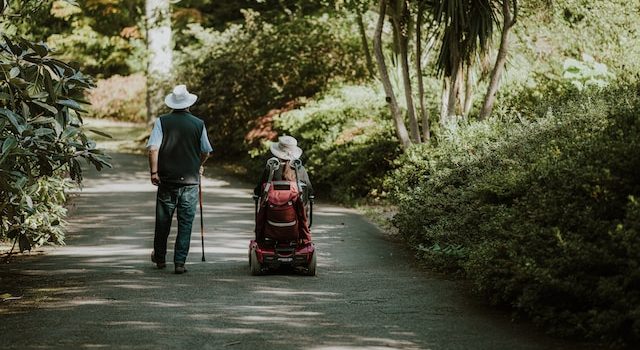
Introduction: Sexuality is a natural and important part of human life, and individuals with disabilities have the same desires, needs, and rights to sexual expression as anyone else. However, due to societal stigma, lack of education, and misconceptions, conversations about sex and disability are often avoided or overlooked. It is essential to break down these barriers and start open and inclusive conversations about sex and disability. In this article, we will explore the importance of starting the conversation and provide tips for initiating and navigating discussions about sex and disability.
- Promoting Education and Awareness: The first step in starting conversations about sex and disability is promoting education and awareness. Educating oneself and others about the diverse experiences and needs of individuals with disabilities can help challenge stereotypes and dispel myths. By providing accurate information and sharing resources on disability and sexuality, we can foster a more inclusive and understanding society.
- Creating a Safe and Judgment-Free Space: Creating a safe and non-judgmental space is crucial for encouraging open discussions. Ensure that the environment is free from distractions, interruptions, and potential sources of discomfort. Establish trust and confidentiality, allowing everyone involved to express their thoughts, concerns, and questions without fear of judgment or ridicule. Active listening and empathy are key in fostering a supportive atmosphere.
- Normalizing the Conversation: Normalize conversations about sex and disability by treating them as a natural and essential part of life. By discussing these topics openly and respectfully, we can break the silence and reduce the associated stigma. Encourage open dialogue and emphasize that everyone has the right to explore their sexuality, regardless of their abilities.
- Framing the Conversation: When initiating the conversation, be mindful of the language used and the way the topic is framed. Choose words and phrases that are inclusive, respectful, and affirming. Focus on fostering a positive and empowering discussion that acknowledges the unique experiences and challenges faced by individuals with disabilities. Emphasize the importance of consent, pleasure, and the right to sexual expression for all.
- Addressing Concerns and Questions: Recognize that discussing sex and disability may bring up concerns, questions, or misconceptions. Encourage participants to share their thoughts openly and honestly. Address concerns by providing accurate information, sharing personal experiences, or referring to trusted resources. It is important to approach questions with sensitivity and respect, creating a space where everyone feels comfortable seeking clarification and understanding.
- Including Perspectives of Disabled Individuals: Incorporate the perspectives and experiences of disabled individuals in the conversation. Ensure that their voices are heard and respected. Individuals with disabilities can provide valuable insights into their own desires, needs, and experiences regarding sex and relationships. Including their perspectives helps break down assumptions and fosters a more accurate and inclusive understanding.
- Seeking Professional Guidance: If needed, seek guidance from healthcare professionals or therapists who specialize in disability and sexual health. They can provide expert advice, answer specific questions, and offer support tailored to individual circumstances. Professional guidance can address concerns related to sexual health, relationships, and intimacy, providing reassurance and guidance on navigating these aspects of life.
- Continuing the Conversation: Remember that conversations about sex and disability are ongoing and evolving. Encourage ongoing dialogue, as new questions, concerns, and experiences may arise over time. Regularly check in with individuals to ensure their needs are being met and that they feel comfortable discussing any further topics related to sex and disability.
Conclusion: Starting conversations about sex and disability is crucial for promoting inclusivity, understanding, and empowerment. By promoting education, creating a safe space, normalizing the conversation, and including the perspectives of disabled individuals, we can break down barriers and foster a society that recognizes and respects the sexual rights and experiences of all individuals, regardless of their abilities. Continued dialogue and support are essential for maintaining a positive and informed approach to sex and disability.










